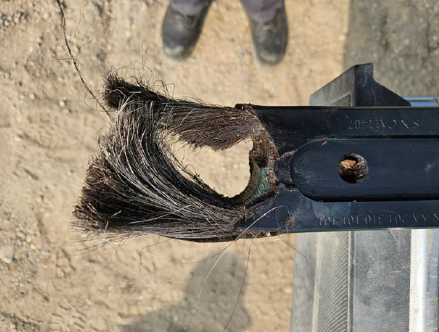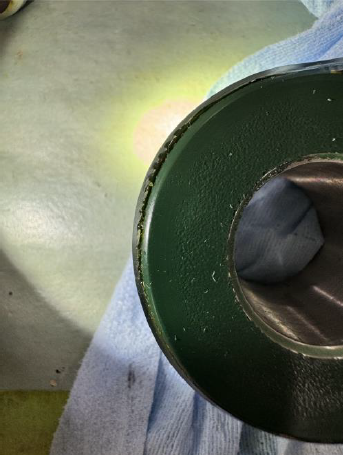Attention:
Owners, operators and maintainers of all Bell 204, 205, 206, 210 and 212 model helicopters
| File Classification No.: | Z 5000-35 |
|---|---|
| RDIMS No.: | 20431680 |
| Document No.: | CASA 2024-08 |
| Issue No.: | 01 |
| Effective Date: | 2024-07-18 |
Purpose:
The purpose of this Civil Aviation Safety Alert (CASA) is to raise awareness of reported defects on the Airwolf Aerospace, LLC (Airwolf) Tension-Torsion (TT) Strap assemblies installed on all Bell 204, 205, 206, 210 and 212 model helicopters. This CASA recommends inspecting the Airwolf TT strap assemblies at the earliest opportunity.
Background:
On 28 June 2024, a fatal accident involving a Bell 212 helicopter occurred near Fort Good Hope Airport (CYGH), Northwest Territories. The Transportation Safety Board of Canada (TSB) reported that the helicopter experienced a main rotor blade separation from the head, and subsequent collision with the terrain. The accident investigation is ongoing.
A failed Airwolf TT strap, as shown in Figure 1, was found at the scene.
Figure 1 – Failed Airwolf TT strap from the 28 June 2024 accident (Source: TSBFootnote 1)
Following this accident, some operators decided to proactively inspect the Airwolf TT straps installed on their helicopters. Transport Canada received a Service Difficulty Report (SDR) that an Airwolf TT strap from a Bell 206B helicopter had a crack in the urethane coating, exposing the wires, as shown in Figure 2.
Figure 2 – Crack in the urethane coating on a Airwolf TT strap installed on a Bell 206B helicopter
The Airwolf TT strap assemblies are subject to an airworthiness limitation which provides an opportunity to conduct a thorough inspection for any signs of damage at their scheduled removal and replacement threshold. Given the recent accident and the subsequent Bell 206B SDR submission, a detailed inspection is strongly recommended.
Recommended action:
Transport Canada recommends that owners, operators and maintainers of all Bell 204, 205, 206, 210 and 212 model helicopters with Airwolf TT strap assemblies installed carry out the inspection of the Airwolf TT straps at the earliest opportunity in accordance with Chapter 5 of the Instructions for Continued Airworthiness Airwolf Report AA-204-ICA Revision B, dated January 21, 2017 or Chapter 5 of the Supplemental Instructions for Continued Airworthiness Airwolf Report AA-206-ICA, Revision D, dated June 19, 2012 or later FAA accepted revisions, as applicable.
Defects such as strap bulge, and cracks in the urethane coating are of particular interest. The integrity of the urethane coating requires close attention, especially at each spool end of the strap, as shown in Figure 2. This proactive approach can help identify the root cause of any failure modes that may be present.
Within Canada, in accordance with the reporting requirement of Part V, subpart 21 (521) of the Canadian Aviation Regulation (CAR), owners, operators and maintainers should submit a SDR to Transport Canada for the discovery of each reportable service difficulty. Outside Canada, report any such occurrence in accordance with local reporting requirements.
Contact office:
For more information concerning this issue, contact a Transport Canada Centre; or contact Nafi Dicko-Raynauld, Continuing Airworthiness in Ottawa, by telephone at 1-888-663-3639, by facsimile at 613-996-9178 or by e-mail at TC.CAWWEBFEEDBACK-retroactionWebMDLN.TC@tc.gc.ca.
Original signed by
Philip Tang
Acting Chief, Continuing Airworthiness
National Aircraft Certification
Defects on the Tension-Torsion strap assemblies
(PDF, 390 KB)
The Transport Canada Civil Aviation Safety Alert (CASA) is used to convey important safety information and contains recommended action items. The CASA strives to assist the aviation industry's efforts to provide a service with the highest possible degree of safety. The information contained herein is often critical and must be conveyed to the appropriate office in a timely manner. The CASA may be changed or amended should new information become available.

